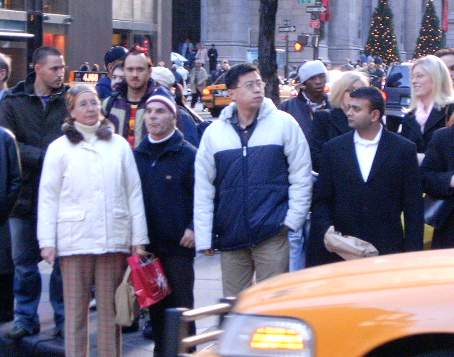
Are we ageing faster or slower than before?
With improvements in medical science and higher standards of living comes longer life expectancy. This means that in the Western world, there is a larger older population than ever before. Not only this, but in the last decade there has been a marked difference in the visible nature of ageing.
“If you don’t consider people old just because they reached age 65 but instead take into account how long they have left to live,” Sergei Scherbov, a researcher at International Institute for Applied Systems Analysis, states, “then the faster the increase in life expectancy, the less ageing is actually going on.”
As recently as the early 1990’s, anyone over 50 was considered to be hurtling towards old age. Now traditional measures of age no longer work. Exercising regularly, eating healthy foods, an awareness of vitamin and mineral intake, protecting skin against sun damage, more advanced and available skin care products, and adopting educational courses all through our lives to keep mentally as well as physically active, all contribute to keep us looking and feeling good beyond middle-age.
Despite this, people still age at different rates. A study carried out by Dan Belsky, an assistant professor of geriatrics at the Duke University Centre for Ageing and Human Development, (2015, Proceedings of the National Academy of Sciences), showed that a person’s “biological age” is often different than their actual age; this biological age can be determined even when someone is still in their 30’s. In this study all of the participants were aged 38. Their cognitive abilities, blood pressure and markers of their kidney, liver, lung and immune system functions were all tested in exactly the same way, yet the biological ages discovered ranged from 28 to 61. This means that some of the 38-year-olds functioned as well as people in their late 20s, whereas others had bodies more usually associated with people of pensionable age.
Belsky carried out his research so that doctors can use his data to explain to patients how their lifestyles are affecting their health. Talking about his research to Live Science, Belsky said, “When… you’re 40 years old, but your body looks 50, it’s very intuitive for most people to understand what that means for their health.” Still, despite research revealing that we may be older – or younger – than our actual age, overall it is true that we are living longer.
“Older people in the future will have levels of many characteristics exhibited by younger people today.” (Sanderson WC, Scherbov S. The Characteristics Approach to the Measurement of Population Aging. Population and Development Review. 2013.)
Of course, with the use of makeup, it can be easy to disguise how old we really are, but that does not change how old we are on the inside – and that is where it really matters.
